Hello, folks!
Cate Blanchett and Todd Field’s podcast interview with John Horn is out now. Some interviews were published too. We also have the scans from the booklet that came with TÁR’s concept album.
Beware of spoilers!
With ‘TÁR,’ Cate Blanchett Continues Her Search for ‘The Great Noble Failure’
If Cate Blanchett remembers correctly, her first meeting with the filmmaker Todd Field could not have gone worse. “I maintain that we met in the foyer of the Four Seasons in Los Angeles,” she says, “and I remember it being one of the most uncomfortable meetings of my entire life. I was meeting a director who clearly didn’t want to meet me, about a project that he was never going to cast me in.”
“He insists that wasn’t him and that I just have early onset dementia,” Blanchett deadpans. “We have a bit of a dispute about this.”
That was 10 years ago, when Field was co-writing a political thriller with Joan Didion which the actress would have starred in. (For what it’s worth, Field recalls his first meeting with Blanchett being “actually really lovely.”) That movie never came to be, but, years later, he sent her a script for another project which he’d written with her in mind. If Blanchett had said no, Field has claimed, he simply wouldn’t have made it. None of which she knew until after they’d wrapped. “That would be an incredibly pressuring thing to hear before you step on set.”
“It was just an undeniable opportunity,” she tells A.frame. “He hasn’t made a film for upward of 15, 16 years. And it’s not because he’s lazy. It’s because he wants to make sure that he can make something which is going to have fully expressed what he wants to say. I think this is definitely that.”
The film is TÁR. It’s about power, its shifting transactional nature, and how it corrupts those in dangerous proximity to systems of power. It’s about culture and cancel culture, celebrity and #MeToo. Blanchett stars as Lydia Tár, a polymath, EGOT winner, renowned composer, and the first woman to conduct the Berlin Philharmonic, considered the world’s greatest orchestra. We meet her at the height of her career. And, over the course of the film, we watch her fall.
“I look for the great noble failure, I think, at this point in my life,” considers Blanchett. “When I began reading the script [for TÁR], I fortunately have a 26-volume edition of the Oxford English Dictionary. And I had to look up every term until, after about the third page, I put it away, and I went, ‘There’s an incredible rhythm happening here. And, in fact, I don’t need to know any of this.’ I found a subterranean connection that I still don’t understand fully. Maybe I don’t ever want to understand it; I just want the reverberations to be with me forever.”
“But I thought, ‘I am going to have to do a lot of work in order to get the audience to feel the same way,’ to understand that this woman knows her onions. Which I found thrilling and terrifying at the same time.”
Blanchett began with a to-do list and started working her way through it: Learn how to play the piano. Learn to speak German. When the film was pushed back a year due to the pandemic, she suddenly had more time to study the skills she would need to embody Lydia Tár. “No one wants to see my homework! Nothing could be less boring,” Blanchett baulks modestly. But she loves the homework. She studied with the conductor Natalie Murray Beale and learned to conduct herself, and then, did so with the Dresdner Philharmonie, the German symphony orchestra that appears in the film.
“I’ve spent many, many decades on stage, so I felt strangely most at home when I was on stage with the orchestra,” she says. “And I said to them in my terrible German, I said, ‘I am not a conductor. And you are not actors. So, somewhere in that liminal space between the two of us, we will find our way together.’ They laughed, and then, we just got on. And I knew I couldn’t apologize for what I needed to do to get there.”
Still, the night before Blanchett would arrive on set and be Lydia Tár for the first time, she couldn’t be sure that she’d gotten there.
“I always ask my husband the night before I start shooting, ‘What’s my process?! What do I— what’s my process?'” she recounts, feigning mock panic. “And he said, ‘Don’t worry.’ He said, ‘You’ll find it. Just stop thinking about yourself and your process and get to work.'” She laughs, “And if the process of preparing this was a slow and steady one, the experience of making the film was an explosion.”
“I don’t want to sound too mauve, but I feel very changed by it,” she smiles. “Because I felt in a really brave — I hate the word ‘brave’ — in a really potent way, shall we say, that we knew where we needed to get. But the process of making it shifted both of us somewhere slightly unexpected. Which was really, really exciting. In a way, no matter what the outcome was, I felt so grateful for that, because I felt shifted as a performer, which doesn’t happen all the time.”
So, how does Blanchett ultimately measure the success of a film like TÁR for herself?
“In the end, it’s how it connects with an audience. I mean, that is everything, right? I learnt a lot as an actor, and I’m grateful for that, but who cares about that, apart from me?!” she guffaws. “My mother, maybe.”
“I look to be in dialogue with people who are able to move the needle,” states Blanchett. “Whether it ultimately works or not — you always hope it does — the process, I know, will be really fascinating. So, I can’t be objective about myself — who cares? — but from that perspective, I think it’s a success.”
Full article on AFrame
High Árt: the TÁR team on mapping their film’s tempo
Some cast members came to TÁR fully baptized into music (Kauer, who is a cellist, and Allan Corduner, a jazz and classical pianist who plays Tár’s assistant conductor, Sebastian), whereas Hoss and Blanchett both learned their respective violin and conducting skills for the job. As befitting her character’s illustrious reputation and desire for the spotlight, Blanchett brings a dramatic lust to Tár’s conducting style.
“Holy guacamole!” the actress exclaims when I ask what she learned about herself from the intensely physical work (that really is her leading the orchestra on the soundtrack). “I feel shifted off my axis by the experience of making this film. I’m not being disingenuous, but I don’t quite… I haven’t fully processed the experience yet, even though we finished shooting a year ago. I don’t know yet, to be honest.”
Processing requires time, and time is both the enemy and the accomplice in TÁR: the time it has taken Field and his artists to bring the film to the screen, and the times that it has been released into. The snail’s pace at which the classical world moves, and the quickness of a tweet. The way Lydia Tár has only a minute for one person, and a whole night for another.
It’s the chronos and the kairos of the strangely wonderful gift that is any immersive, ephemeral artwork—a film, a concert, a play, a dance—where life outside the theater carries on at pace for, in this case, 158 minutes while inside, time slows as Tár’s ambitiously crafted world unravels over several months. And the weeks that follow, when our synapses start tickling, connecting a seemingly small detail in one section to a line of dialogue in another; the work of a production designer connecting to a costume detail connecting to a composer’s refrain, all the instruments of this filmmaking orchestra playing their part.
What Blanchett does know: “The process of actually bringing music back into my life and the encounter with the Dresdner Philharmonie, I feel profoundly changed by it. And, I hope, for the better. It’s been very rich, and very deep.”
Full article on Letterboxd
Cate Blanchett on processing the experience of making @tarmovie ? @TheNYFF #TarMovie#CateBlanchett #NYFF60 https://t.co/V4f89gnHyC pic.twitter.com/kd0vqJwRME
— Letterboxd (@letterboxd) October 15, 2022
TÁR Concept Album
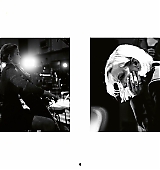
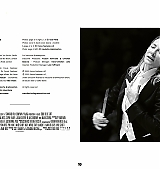
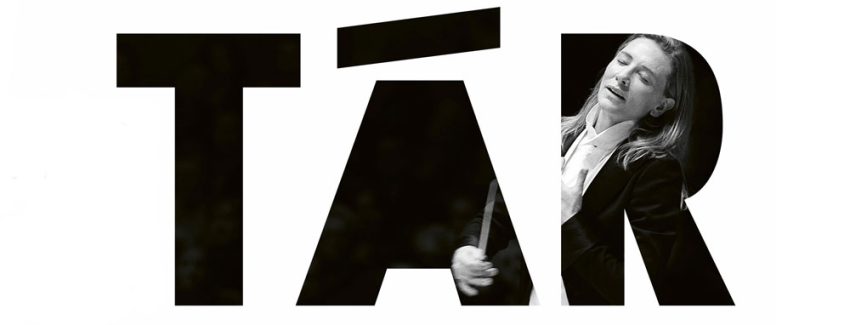
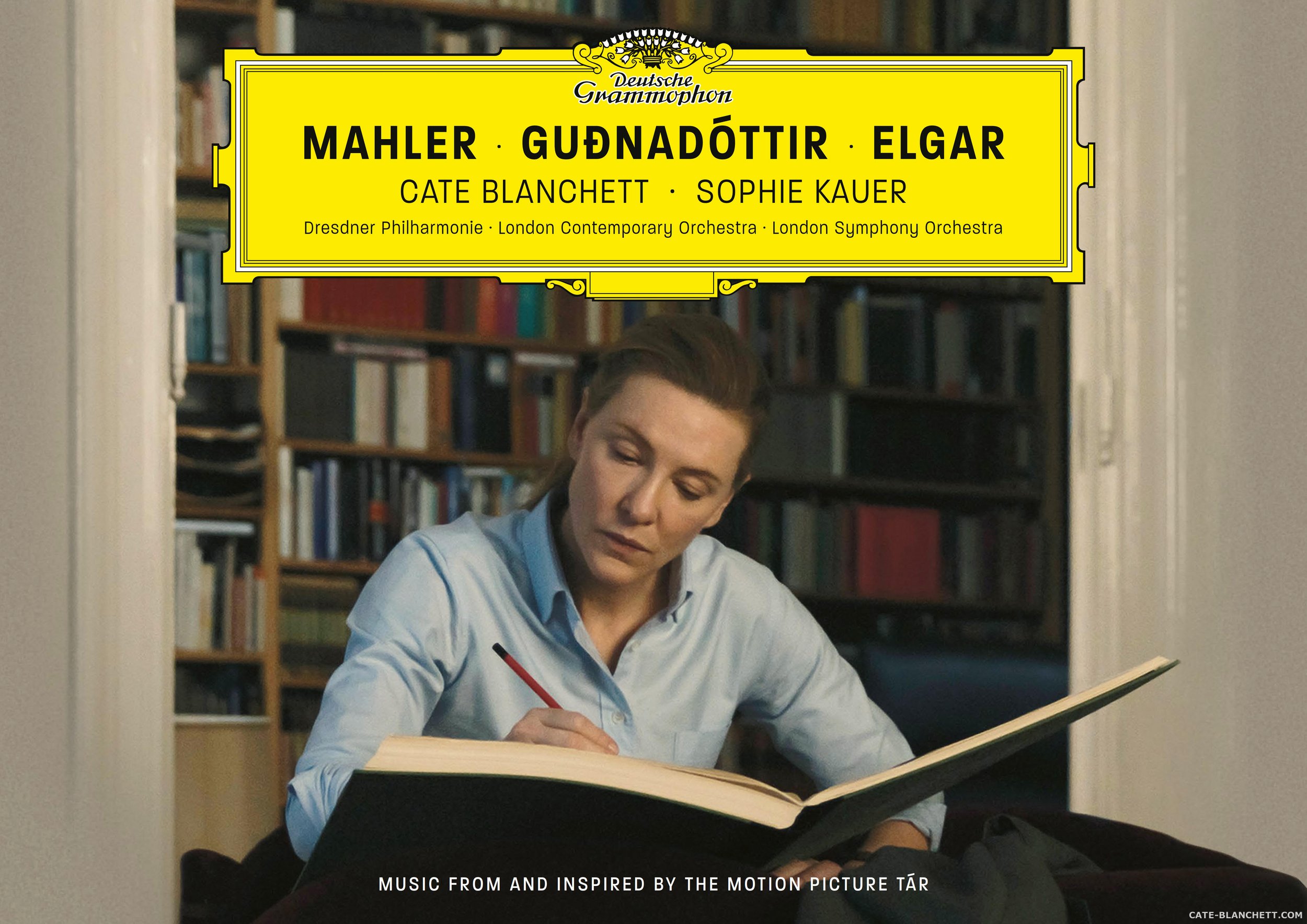
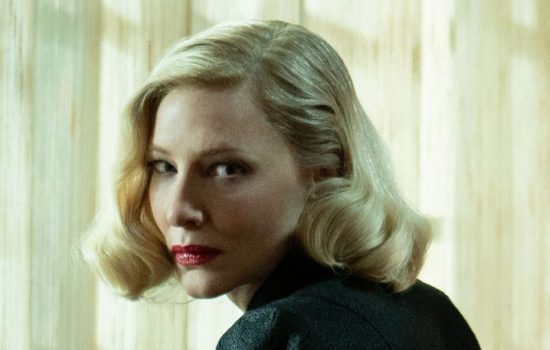
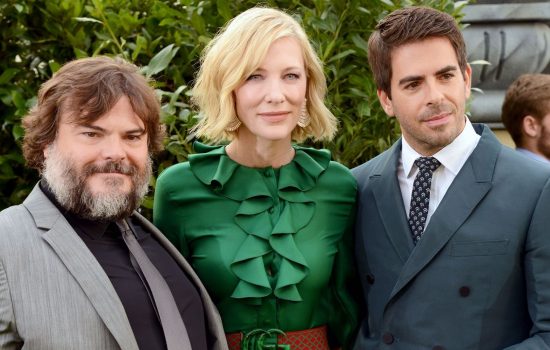

 A Manual for Cleaning Women (202?)
A Manual for Cleaning Women (202?) Father Mother Brother Sister (2025)
Father Mother Brother Sister (2025)  Black Bag (2025)
Black Bag (2025)  The Seagull (2025)
The Seagull (2025) Bozo Over Roses (2025)
Bozo Over Roses (2025) Disclaimer (2024)
Disclaimer (2024)  Rumours (2024)
Rumours (2024)  Borderlands (2024)
Borderlands (2024)  The New Boy (2023)
The New Boy (2023) 











